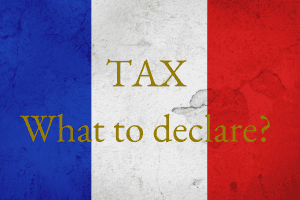No-one needs reminding that 2020 was a year like no other. Our lives were changed in many ways and this had an effect on our finances. Luckily there were many government schemes and initiatives to help people overcome the financial difficulties suffered in lockdown and because of the health restrictions. However now that 2021 tax season is upon us, what now needs to be declared?
Salaried workers bonus is tax exempt
Last year some salaried workers may have received a consumer bonus which is exempt from tax up to €1000 (or €2000 if there is an interest agreement/“accord d’intéressement”) Public workers and health workers also received a bonus which is exempt up to €1500.
Overtime hours are usually exempt up to €5000 per year, however the exemption threshold has been increased to €7500 for those hours carried out between the beginning of lockdown (16th March 2020) and the last day of the emergency health state set at 10th July 2020. This applies to salaried workers in the public and private sector as well as those under special regimes. All exempt overtime must still be declared on the tax form and will be included in the tax income reference rate for the tax household.
The Ministry for Economy and Public Accounts has announced that the payments paid by companies to their employees to cover the costs of working from home are exempt from tax up to €2.50 per day worked at home and up to €50 per month for 20 days and €550 per year.
Salaried workers who choose to deduct their actual costs rather than applying the flat 10% abatement on their salaries, can still choose this options without supplying supporting documents however these deductions may not be so beneficial depending on your level of salary. As always it is best looking at both options and seeing which works best for you.



